
TeamGroup
After Sony rolled out a new update that activates support for M.2 SSDs on the PlayStation 5, it was only a matter of time before the manufacturers got organized to offer console-optimized media. TeamGroup Japan recently unveiled its T-Force Cardea A440 Pro Special Series SSDs, made specifically for PS5. TeamGroup's T-Force Cardea A440 Pro Special Series SSDs will be available in 1TB, 2TB, 4TB and 8TB sizes to meet the needs of gamers. Performance-wise, the new drives are rated for sequential read speeds of up to 7,400MB / s and sequential write speeds of up to 7,000MB / s - as reported by Hermitage Akihabara.Credit: TeamGroup TeamGroup's SSDs for Sony PlayStation 5 are equipped with a PCIe 4.0 x4 interface, have an M.2-2280 form factor and are equipped with a thin graphene heatsink to ensure proper dissipation even when the SSD housing of PS5 is closed.
1TB 2TB 4TB 8TB Sequential Read Speed 7200 MB / s 7400 MB / s 7400 MB / s 7400 MB / s Sequential Write Speed 6000 MB / s 7000 MB / s 7000 MB / s 7000 MB / s TBW 700 1400 3000 3000 DWPD 0.38 0.38 0.41 0.2 games and offer high capabilities, in addition to in Integrate a graphene heat sink to improve cooling when the compartment is closed. Unlike PCs and workstations, game consoles don't need high read / write performance for long periods of time, so maximizing performance in burst mode was the obvious choice, at least until PS5 games become large enough to increase loading times.
TeamGroup's T-Force Cardea A440 Pro Special Series SSDs will be available next October. The drives will be covered by a five-year warranty and are rated 0.2 to 0.4 Drive Writes Per Day (DWPD).
TeamGroup manufactures the spectacular T-Force drives with ARGB lighting, which you can purchase on Amazon at a good price.
TEAMGROUP MP34Q SSD Review
The TEAMGROUP MP34Q M.2 SSD is the company’s newest NVMe SSD to hit the market. It features 3D QLC NAND, NVMe Gen3 interface, and comes in capacities ranging from 2TB to 8TB. These new drives are meant for general consumers and professionals looking for a high-capacity SSD for their mainstream workloads.
The TEAMGROUP MP34Q M.2 SSD is the company’s newest NVMe SSD to hit the market. It features 3D QLC NAND, NVMe Gen3 interface, and comes in capacities ranging from 2TB to 8TB. These new drives are meant for general consumers and professionals looking for a high-capacity SSD for their mainstream workloads.
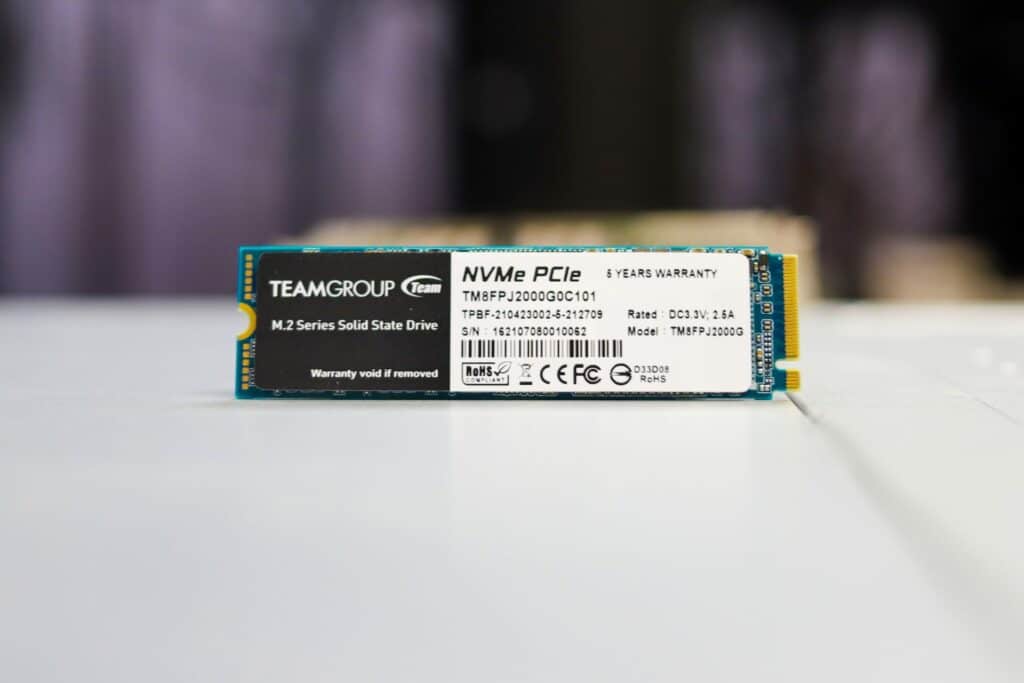
For performance, TEAMGROUP quotes the MP34Q with read and write speeds up to 3,400MB/s and 3,000MB/s, respectively, while indicating a 1.8 million hour MTBF. As is the case with the MP34Q, QLC drives most often feature higher-capacity models at a lower price point. However, this comes at a cost, as these types of SSDs usually have a very small continuous write capability and are therefore unable to reach the same performance level as TLC-based SSDs. To help offset some of this, the MP34Q features dual cache technologies: SLC Caching and DRAM Cache Buffer.
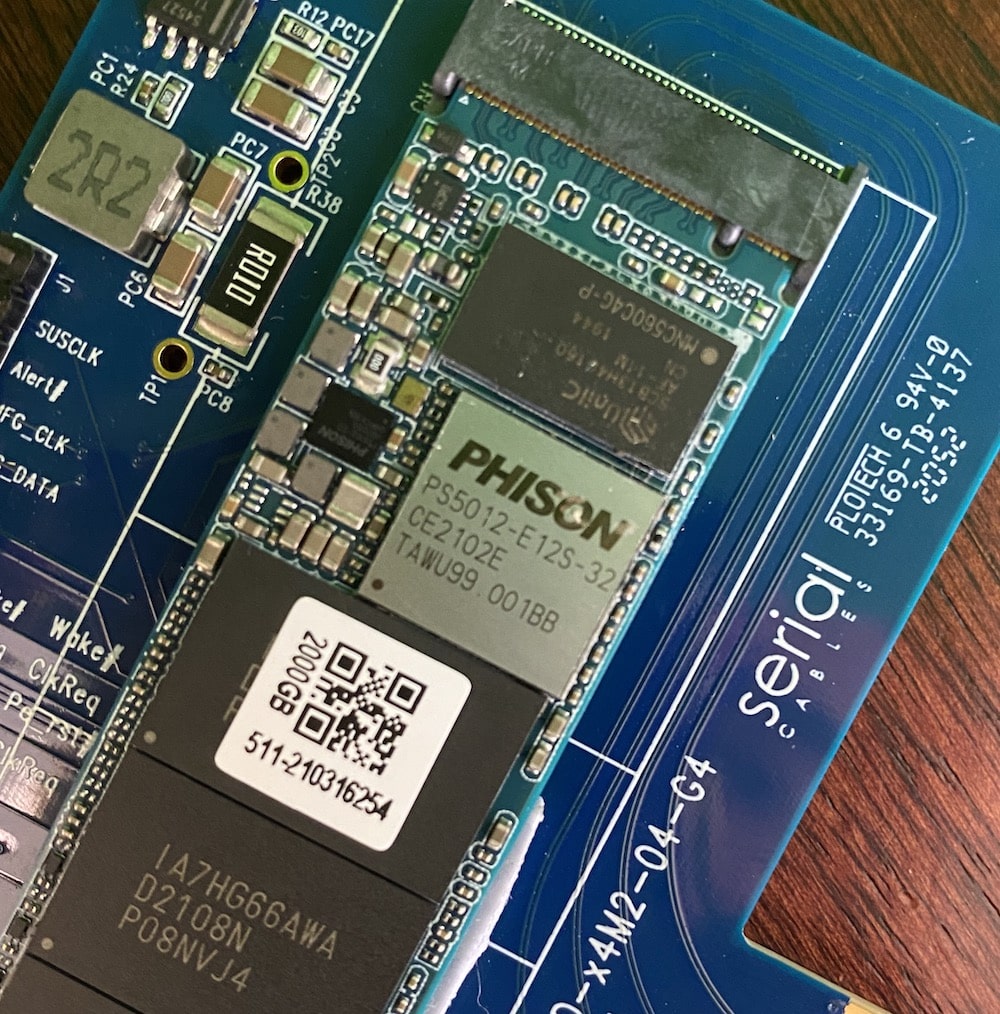
The TEAMGROUP MP34Q is managed with a Phison PS5012-E12S-32 controller. This controller features a dual-CPU architecture, built-in 32-bit microcontroller, TSMC 28nm process technology, and support for both 3D TLC and QLC NAND flash memory. We last saw a Phison E12 controller with the OWC Aura P12, a good-performing consumer NVMe drive with a reasonable price tag.
TEAMGROUP SSD S.M.A.R.T. Monitoring ToolTEAMGROUP offers an in-house SSD S.M.A.R.T. tool monitoring software. It’s a fairly basic software package that allows users to monitor the condition and performance of TEAMGROUP SSDs. More specifically, you can view the drive’s model, firmware version, transfer mode, capacity, health status, temperature, power-on count, power-on hours, and S.M.A.R.T results. It also displays detailed information about the host computer.
The tool also has a benchmarking feature for those who want to gauge the drive’s 4K and sequential performance. For these tests, you can also customize the test plan, loop number, specific drive, file size, and benchmark type.
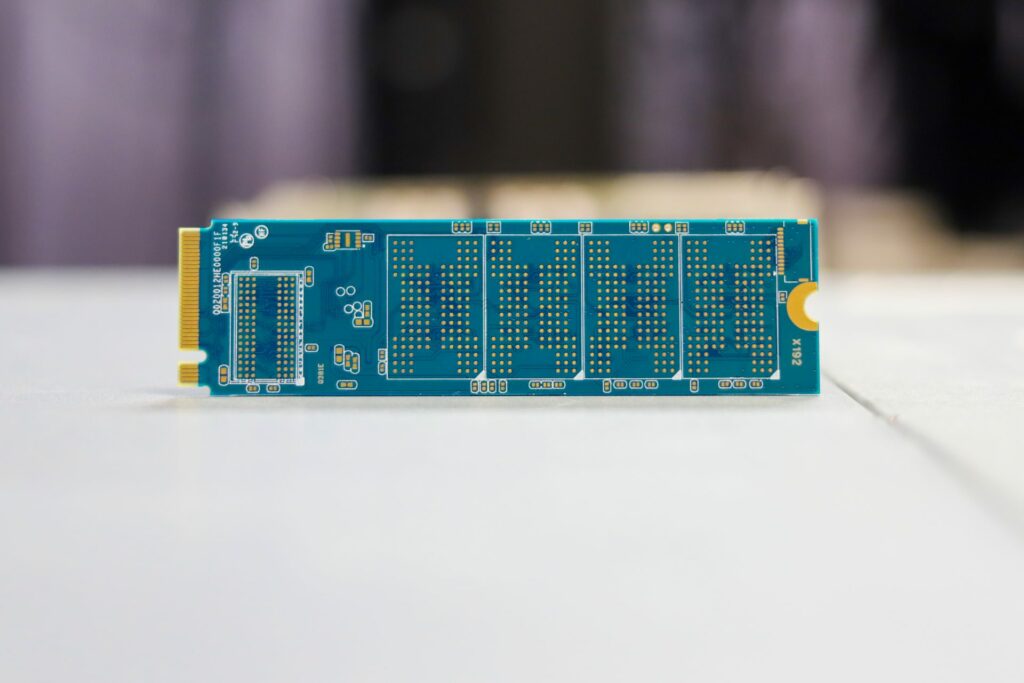
Backed by a 5-year warranty, the TEAMGROUP MP34Q comes goes for roughly $300 (2TB). We will be looking at the 2TB model for this review.
TEAMGROUP MP34Q SpecificationsModelMP34Q M.2 PCIe SSDInterfacePCIe 3.0 x4 with NVMe 1.3Capacity2TB, 4TB, 8TBNAND3D QLCPerformanceRead/Write: up to 3,400 / 3,000 MB/sMTBF1,800,000 hoursTemperaturesOperation: 0˚C ~ 70˚CStorage: -40˚C ~ 80˚C
Weight6gDimensions80(L) x 22(W) x 3.8(H) mmHumidityRH 90% under 40°C (operational)Vibration80Hz~2,000Hz/20GShock1,500G/0.5msVoltageDC +3.3VWarranty5-year limited warrantyTEAMGROUP MP34Q PerformanceSQL Server Performance
Each SQL Server VM is configured with two vDisks: 100GB volume for boot and a 500GB volume for the database and log files. From a system resource perspective, we configured each VM with 16 vCPUs, 64GB of DRAM and leveraged the LSI Logic SAS SCSI controller. While our Sysbench workloads tested previously saturated the platform in both storage I/O and capacity, the SQL test is looking for latency performance.
This test uses SQL Server 2014 running on Windows Server 2012 R2 guest VMs and is stressed by Quest’s Benchmark Factory for Databases. StorageReview’s Microsoft SQL Server OLTP testing protocol employs the current draft of the Transaction Processing Performance Council’s Benchmark C (TPC-C), an online transaction-processing benchmark that simulates the activities found in complex application environments.
The TPC-C benchmark comes closer than synthetic performance benchmarks to gauging the performance strengths and bottlenecks of storage infrastructure in database environments. Each instance of our SQL Server VM for this review uses a 333GB (1,500 scale) SQL Server database and measures the transactional performance and latency under a load of 15,000 virtual users.
SQL Server Testing Configuration (per VM)
Looking at SQL Server average latency, the MP34Q had an average latency of 6ms placing it near lower-middle part of the leaderboard (though still a solid score) overall, but quite competitive against other QLC SSDs.
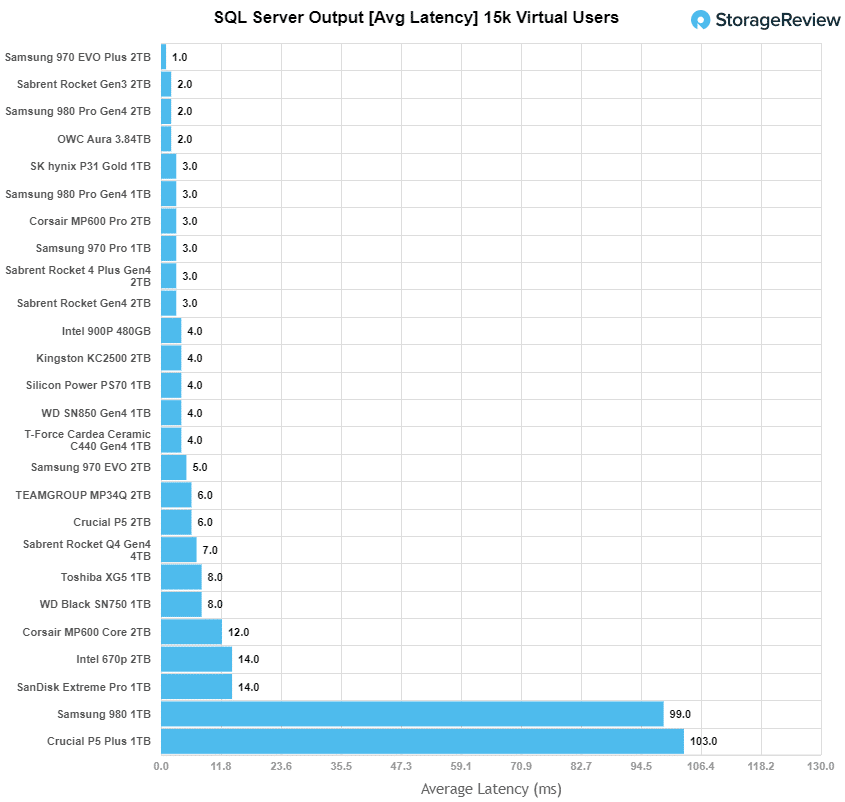
VDBench Workload Analysis
When it comes to benchmarking storage devices, application testing is best, and synthetic testing comes in second place. While not a perfect representation of actual workloads, synthetic tests do help to baseline storage devices with a repeatability factor that makes it easy to do apples-to-apples comparison between competing solutions. These workloads offer a range of different testing profiles ranging from “four corners” tests, common database transfer size tests, to trace captures from different VDI environments.
All of these tests leverage the common vdBench workload generator, with a scripting engine to automate and capture results over a large compute testing cluster. This allows us to repeat the same workloads across a wide range of storage devices, including flash arrays and individual storage devices. Our testing process for these benchmarks fills the entire drive surface with data, then partitions a drive section equal to 5% of the drive capacity to simulate how the drive might respond to application workloads. This is different than full entropy tests which use 100% of the drive and take them into a steady state. As a result, these figures will reflect higher-sustained write speeds.
Profiles:
Comparables
In 4K random read, the TEAMGROUP MP34Q started things off with solid consistent performance, posting a peak performance of 331,653 IOPS and a latency of 386.5µs.
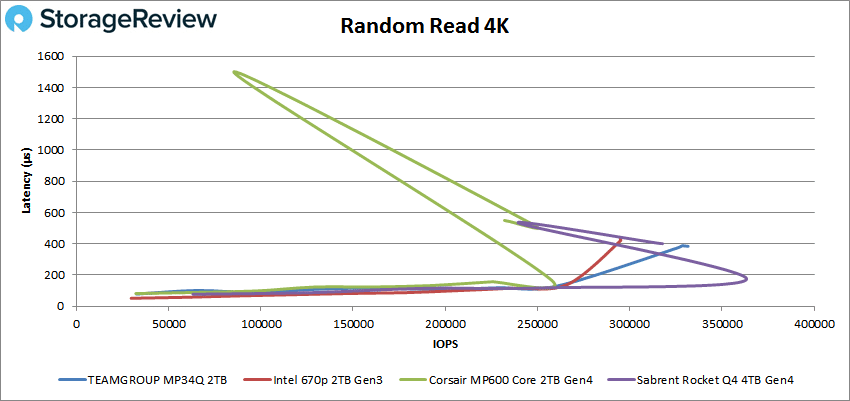 For 4K write, the MP34Q placed first with a peak of 303,336 IOPS with a latency of 416.2µs.
For 4K write, the MP34Q placed first with a peak of 303,336 IOPS with a latency of 416.2µs.
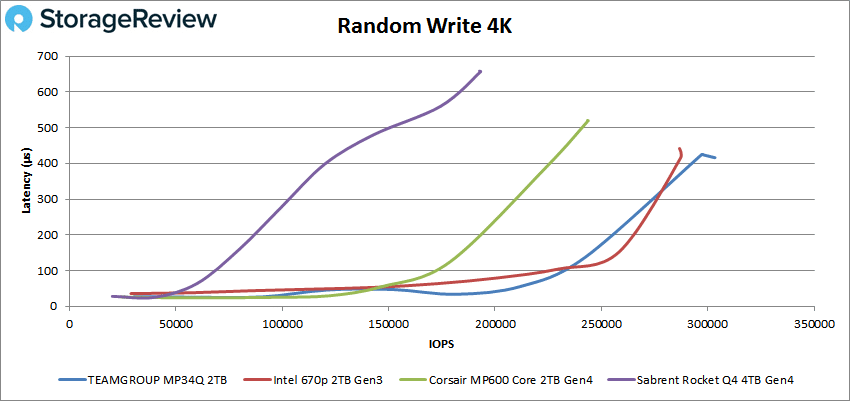
Switching to sequential workloads we look at our 64K tests. In read, the MP34Q Plus fell back to third place with 46,523 IOPS or 2.9GB/s with a latency of 686.6µs.
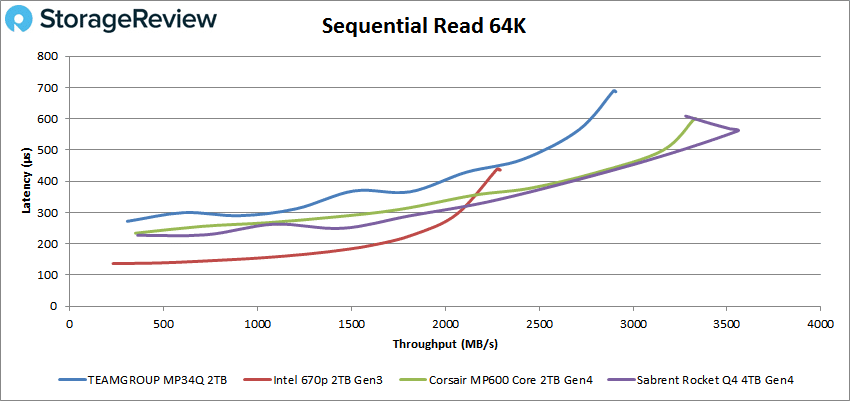
In 64K writes, the MP34Q placed third again, posting a peak score of 45,625 IOPS or 2.85GB/s at a latency of 343.1µs.
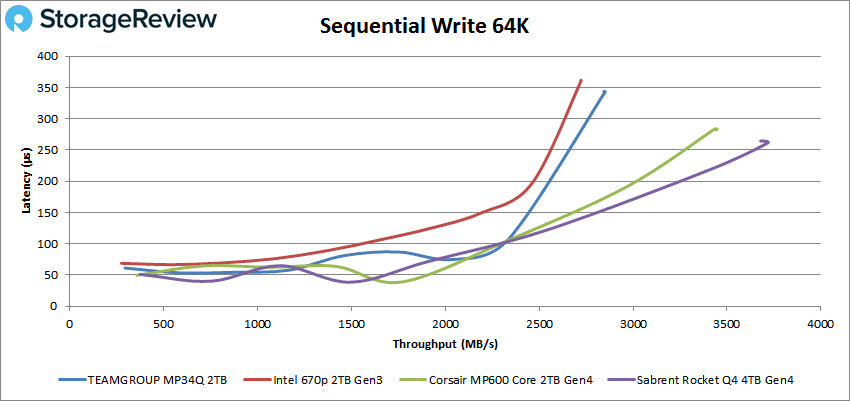
Next, we looked at our VDI benchmarks, which are designed to tax the drives even further. These tests include Boot, Initial Login, and Monday Login. Starting with Boot, the TEAMGROUP MP34Q had a peak of 86,993 IOPS with a latency of 366µs before it dropped off a bit at the very end of the test.
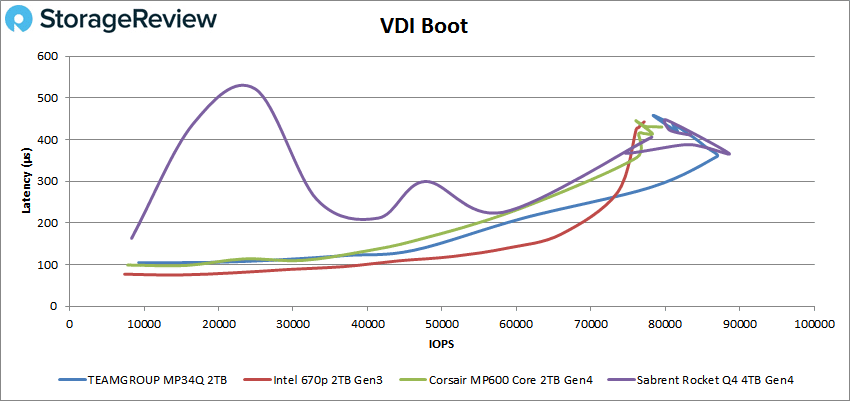
In VDI Initial Login, the MP34Q showed a peak of 30,744 IOPS and a latency of 972µs before it had fairly noticeable spikes in performance.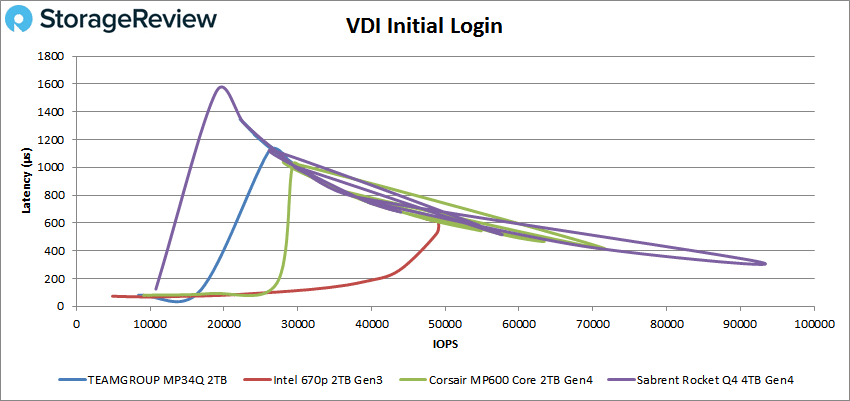
Finally, VDI Monday Login saw the MP34Q peak at 22,353 IOPS with a latency of 712.7µs before showing a slight dip at the very end.
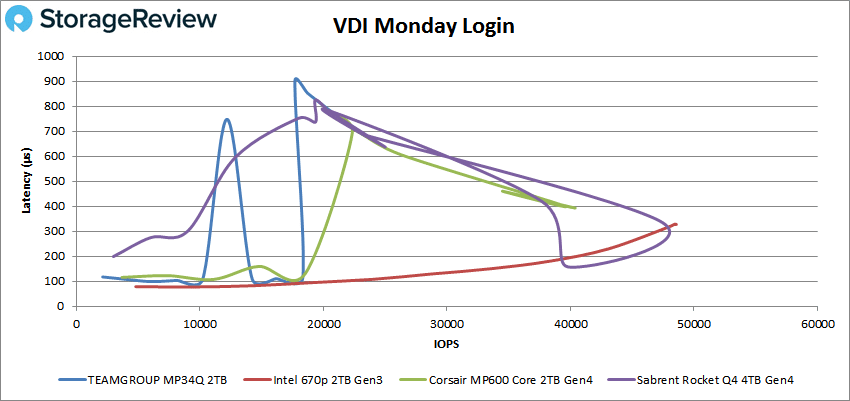
The TEAMGROUP MP34Q is the company’s latest consumer-grade M.2 SSD. This new line is best suited for general consumers who need a high-capacity drive for their new Gen4-compatible motherboard. It also comes bundled with an SSD management tool, which includes detailed monitoring, performance benchmark tests, and drive/system information. The new QLC-based SSD also features SLC Caching and DRAM Cache Buffer, dual cache technologies that can help improve overall performance.
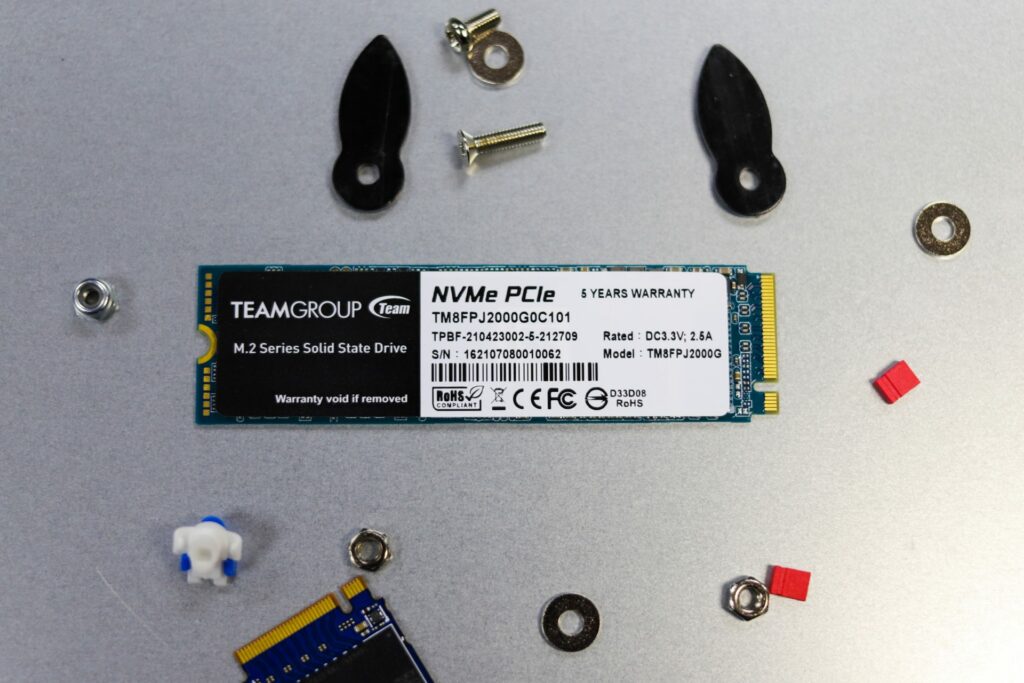
For performance, we ran SQL and VDBench tests. The MP34Q showed mainly solid results, placing at the near the middle to upper-top of the leaderboard in most tests. In average latency the new TEAMGROUP drive posted 6ms. Though this score was near the lower-middle part of the leaderboard, it was still a decent score when you look at it against other QLC SSDs.
Looking at Peak VDBench scores, the MP34Q recorded 331,653 IOPS in 4K read, 303,336 IOPS in 4K write, 2.9GB/s in 64K read, and 2.85GB/s in 64K write. In our VDI tests, the drive hit 86,993 IOPS in boot, 30,744 IOPS in Initial Login, and 22,353 in Monday Login.
Overall, the MP34Q is a solid release by TEAMGROUP. While the large capacity QLC drives aren’t really popular yet, as they’re still pretty expensive ($1300), it’s good to have more options. Though the MP34Q doesn’t offer the same performance as more premium drives, that’s not what it’s trying to do. For the price-conscious, it still offers good transfer rates for its class (especially in writes) at a competitive price point for the lower capacity models.
Find this drive at Amazon
Engage with StorageReview
Newsletter | YouTube | LinkedIn | Instagram | Twitter | Facebook | TikTok | RSS Feed